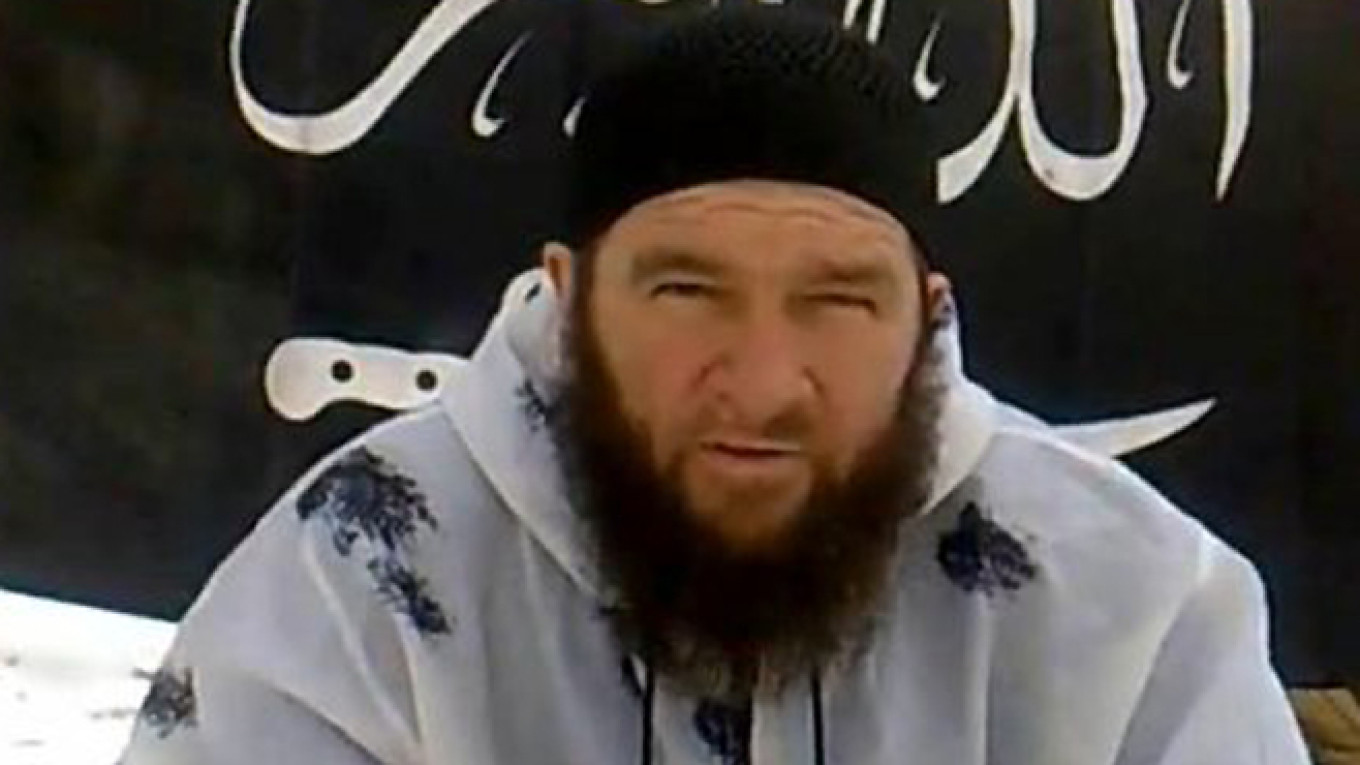Russia's most wanted terrorist Doku Umarov is dead after all.
His death must have been a tangible setback for the insurgency in the North Caucasus. After all, Umarov was the founding emir of the Emirate Caucasus, which serves as the umbrella organization for many Islamist militant and terrorist groups operating in the North Caucasus and seeks to build a caliphate in this volatile region. He was also the last living prominent warlord who had occupied commanding positions in both of the Chechen Wars.
Umarov has been pronounced dead multiple times only to inevitably surface again somewhere on the Internet to rally supporters and threaten new attacks in prerecorded videos. Therefore, it was hard to believe Chechen leader Ramzan Kadyrov's announcement in January that Umarov had died.
But this time is different. Even though the Russian security services continue to deny knowledge of Umarov's death, Akhmet Zakayev, a Chechen separatist leader, said that he may have died in August. There are two main reasons to believe Zakayev is right.
First, the last videos featuring Umarov date back to summer 2013, when he commented on the appointment of a new emir for the Emirate Caucasus' Ingushetia branch, answered questions from foreign supporters, and vowed to attack the 2014 Sochi Winter Olympics. The Sochi Games have come and gone, and Umarov never delivered on his threat to attack the international sports event, which he described as “a satanic dance.”
Second, the Kavkaz Center, which serves as the main medium for messages that the North Caucasus networks wish to disseminate, posted Umarov's obituary on Tuesday and it remained there as of Friday. In a separate message also posted on Tuesday the site announced that Aliaskhab Kebekov, a 42-year old Avar from Dagestan, has been elected as the new leader of Emirate Caucasus – making him the first non-Chechen to claim supremacy over the North Caucasus-based insurgency.
Apparently, Kebekov had competed for the position with Aslambek Vadalov, a native Chechen and veteran of both Chechen wars. In comparison, Kebekov joined insurgency only in 2009, according to Novaya Gazeta. Vadalov had become so prominent in the insurgency, that Umarov even picked him as his successor when he considered resigning in 2010.
Nevertheless, Kebekov’s ascendancy to the top of Emirate Caucasus, which has proclaimed establishment of a caliphate in the North Caucasus as its goal, is not surprising. Vadalov has been preoccupied with Chechen independence while the Emirate Caucasus seeks to build a sharia state in the North Caucasus.
In comparison, Kebekov has demonstrated his commitment to the pan-Caucasian Islamist cause. He is well-versed in purist militant interpretations of Islam, serving first as the qadi (Sharia judge) of the Emirate Caucasus' Dagestan branch and then of the entire organization.
Just as important, Kebekov?€™s Dagestan has eclipsed Vadalov's Chechnya as the epicenter of political violence in the region. My calculations show that Dagestan has come to account for one quarter of all terrorist incidents in Russia.
The damage done to Emirate Caucasus by the death of the leader is tangible, but will not be lasting. After all, this is a decentralized umbrella organization whose previous head appeared to be more focused on inspiring than executing attacks, if only to avoid detection.
And while my calculations show the number of terrorist incidents in the North Caucasus declined almost by 28 percent from 2010 to 2011 and another 14 percent from 2011 to 2012, the insurgency continues to plague the region. For instance, the number of Russian security officials killed by insurgents last year equaled the casualties suffered by the US military in Afghanistan in the same period.
That is not to say that Russian pacification efforts have been ineffective. The security services have successfully eliminated all of the supreme leaders of the Chechen separatist movement and the North Caucasus insurgency, beginning with Dzhokhar Dudayev and ending with Doku Umarov, as well as dozens of lower-level warlords.
But these posts never stay vacant for very long. Unfortunately, abuses of population, historical grievances, and socio-economic disparities continue to produce recruits for networks of terrorism and insurgency in the region. Spread of Salafi-jihadist ideology and lack of legitimate opportunities for political competition also facilitate violence, according to Domitilla Sagramoso and other leading scholars of the region.
The past few years have seen Russian authorities make serious efforts to address root cases of and contributing factors behind the political violence in the region. But, clearly these efforts need to be doubled, or else, political violence will continue to plague the region and Russia as a whole.
Simon Saradzhyan is a? research fellow at? Harvard University's Belfer Center for Science and International Affairs.
A Message from The Moscow Times:
Dear readers,
We are facing unprecedented challenges. Russia's Prosecutor General's Office has designated The Moscow Times as an "undesirable" organization, criminalizing our work and putting our staff at risk of prosecution. This follows our earlier unjust labeling as a "foreign agent."
These actions are direct attempts to silence independent journalism in Russia. The authorities claim our work "discredits the decisions of the Russian leadership." We see things differently: we strive to provide accurate, unbiased reporting on Russia.
We, the journalists of The Moscow Times, refuse to be silenced. But to continue our work, we need your help.
Your support, no matter how small, makes a world of difference. If you can, please support us monthly starting from just $2. It's quick to set up, and every contribution makes a significant impact.
By supporting The Moscow Times, you're defending open, independent journalism in the face of repression. Thank you for standing with us.
Remind me later.


